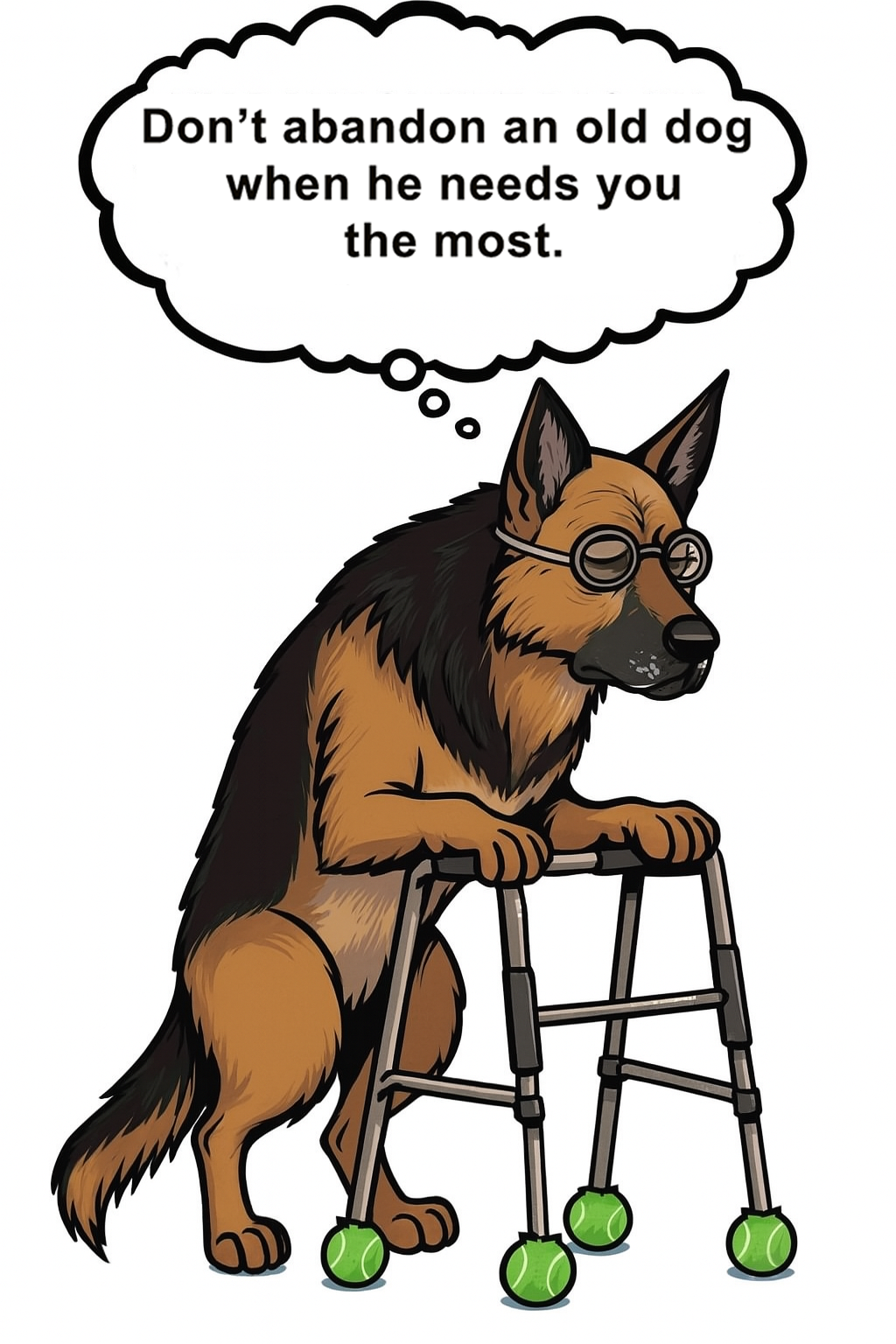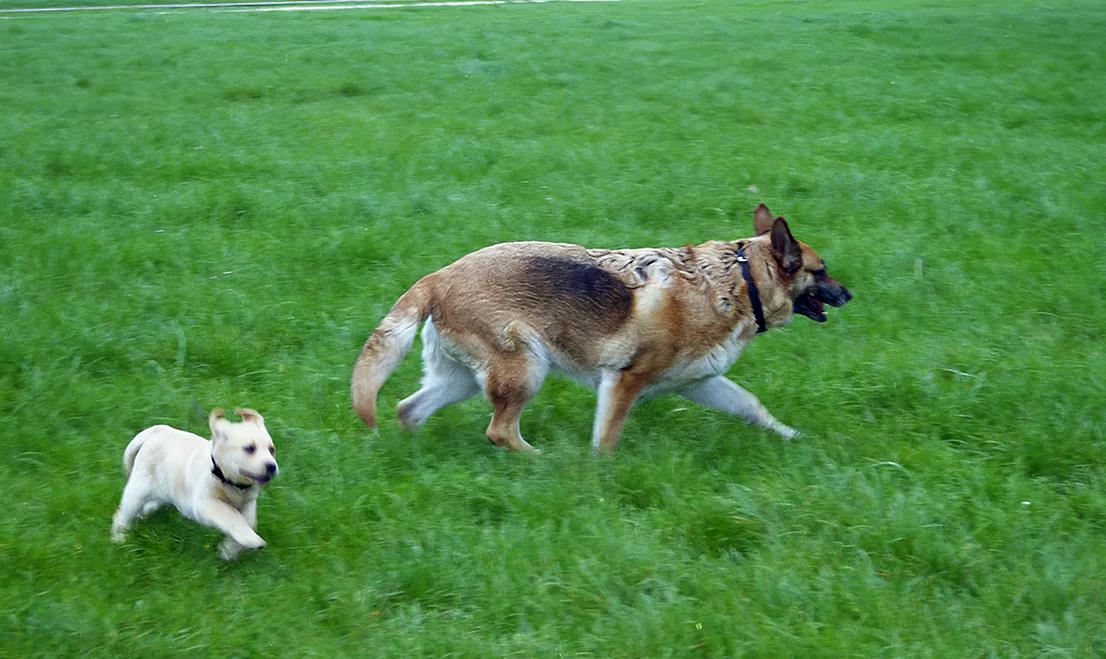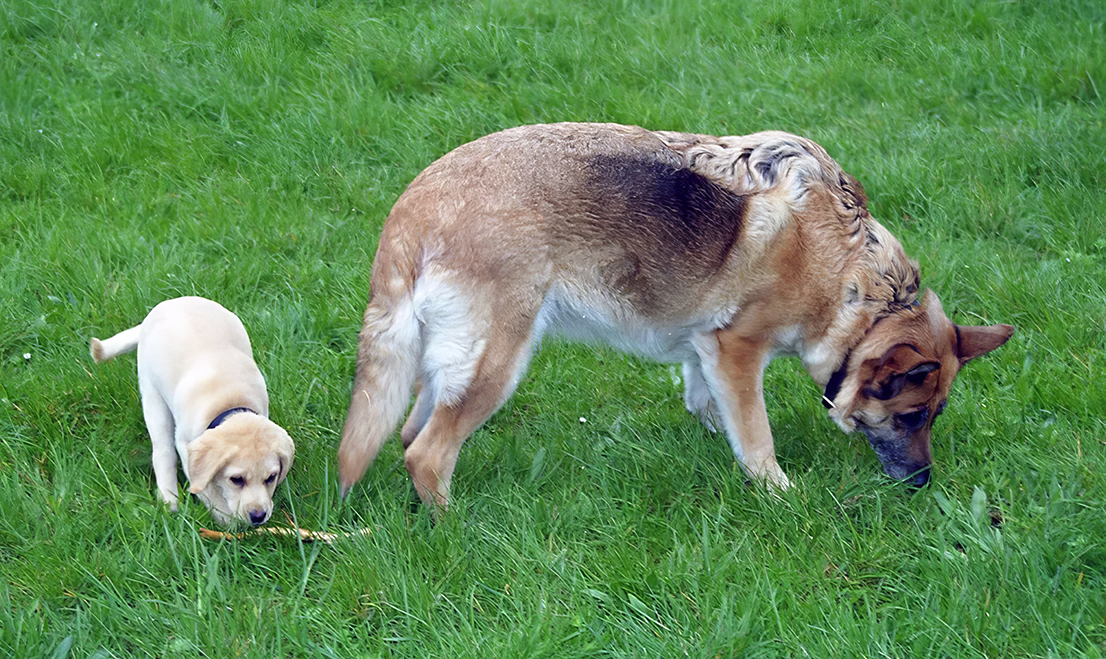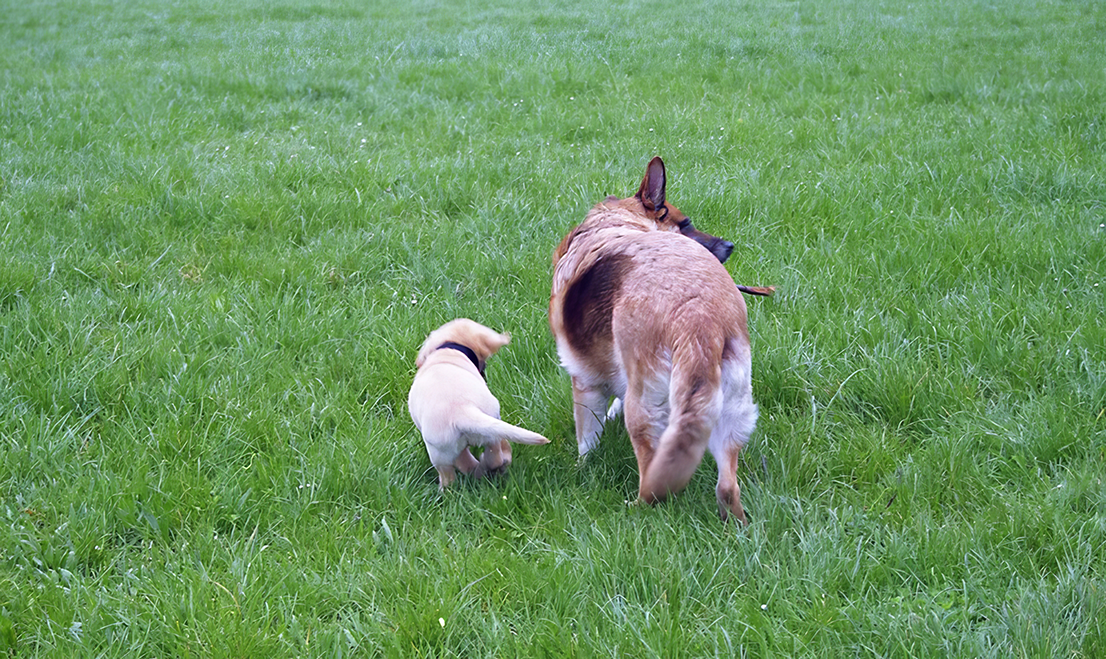Old Age Is Not a Disease
Thanks to advances in veterinary care, better nutrition, and overall improved wellness, dogs are living longer, healthier lives than ever before. But just like people, they feel the effects of aging. You may have noticed that your once energetic German Shepherd now moves a little more slowly or rests more often. By understanding the natural changes that come with aging and learning how to support your dog through them, you can help your furry friend enjoy a comfortable, happy senior life—and make the most of these precious years together.

⏳ Our Dogs Are Aging
Although there’s nothing more natural than growing old, it’s a reality that’s hard to accept, as we watch the number of years left with our companions slip away far too quickly. We also notice them slowing down, conserving energy, and sleeping more. Aches appear here and there in their aging joints. In the mornings, they may be a bit stiff when getting up, but they still greet us with the same enthusiasm. Despite their age, they still love life, so let’s cherish our senior dogs and make sure they enjoy their lives as long as possible. Here are some tips for taking care of your beloved old furry friend.
🛏️ Provide a Comfortable Bed:
A good bed is essential to reduce joint pain associated with arthritis. Arthritis is the degeneration of joint cartilage. Nature abhors a vacuum, so bone growth gradually develops beneath the cartilage. Joints then become less flexible and often painful, especially upon waking, “cold.” A thick mattress helps relieve the dog’s joints, improving mobility in the morning. Choose a memory foam mattress or even a baby mattress. You can often find second-hand ones at very low cost, greatly improving your dog’s comfort. Avoid beds that are too small, which force your senior dog to sleep in the same position. Of course, a dog with arthritis should sleep away from cold and damp conditions.
🥩 Offer a Balanced Diet:
Older dogs often have tartar problems, and their digestive systems can be a bit more sensitive than when they could eat anything without consequence. If your dog eats kibble, choose a high-quality brand and avoid supermarket brands. It’s worth investing in good food to prevent costly veterinary issues caused by inappropriate diets. If your dog is on a BARF (raw) diet, that’s perfect: raw food avoids the allergenic additives found in kibble, and chewing meaty bones helps prevent excessive tartar buildup. Even if your dog eats kibble, provide raw bones (never cooked—they’re dangerous!) and supervise. Avoid bones from large herbivores; opt for cartilage-rich bones like veal knees.
🚶 Maintain Regular Physical Activity:
Your senior dog may not be as energetic as before, but they still need walks and exploration! Continue to take them out as often as when they were young—this keeps their spirits high and muscles strong. Prefer calm, shorter walks if your dog tires easily, and take regular breaks. Avoid jumps over ditches or steep inclines. Provide a ramp or folding stairs for getting into the car, or carry your dog if needed.
🧠 Stimulate Their Mind:
Daily walks are essential, but mental exercise keeps your dog’s mind young! Teach gentle tricks, use scent/search games or puzzle toys to engage the mind without stressing joints. Homemade games (box with paper and hidden treats, cover-a-reward games) work very well.
🕒 Maintain a Comforting Routine:
Provide temporal landmarks in the day (morning/afternoon walk, set meal times, small bedtime ritual). These rituals help senior dogs keep orientation in our human world.
😴 Ensure Quality Sleep:
Senior dogs need more sleep. Offer several comfortable spots and ensure children do not disturb them on their resting place, especially if arthritis causes pain.
🩺 Ensure Proper Health Care:
Occasional osteopathy can help; consider supplements (chondroitin, glucosamine) and consult your vet before starting any treatment.
❤️ Most importantly, cherish every moment with your senior dog:
He won’t be with you forever, and every minute spent together is precious.
Text written by Elsa Weiss / Cynopolis
As Your Dog Ages, Senses Decline:
Hearing, vision, and smell will gradually deteriorate. Your dog will be less agile, and reflexes won’t be as sharp as before. A general decrease in activity is often the first sign of aging. At this stage of life, a full veterinary check-up is recommended at least once a year. In addition to a physical exam, the vet may suggest tests such as blood work to detect potential problems early, before they worsen over time.
Available Treatments and Supplements:
Today, many treatments exist to help our dogs age comfortably, such as Nelio or Fortekor for heart failure, Candilat for cognitive decline, and Laxatone for sluggish intestines. For treating arthritis, which is inevitable in senior dogs, non-steroidal anti-inflammatory drugs (NSAIDs) are commonly prescribed. They are effective pain relievers but can cause serious side effects if used long-term. Dietary supplements can provide excellent results without harming the digestive system.
Introducing a Puppy: Bringing a puppy into the home can help stimulate and revitalize an older dog.


